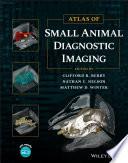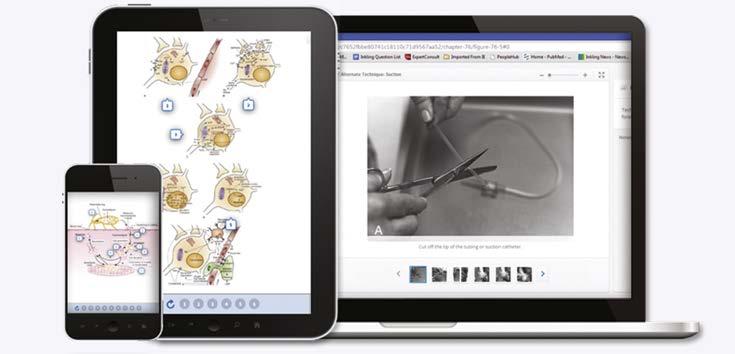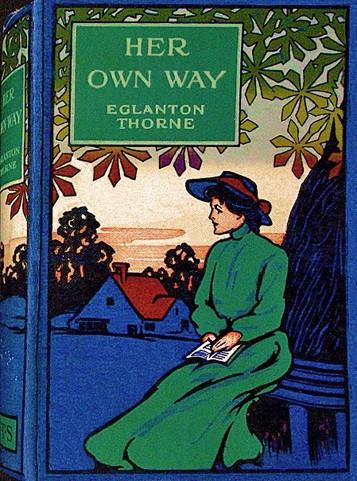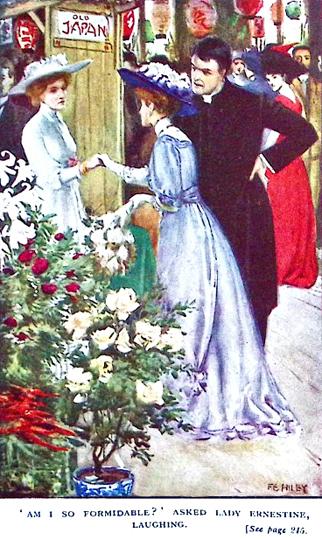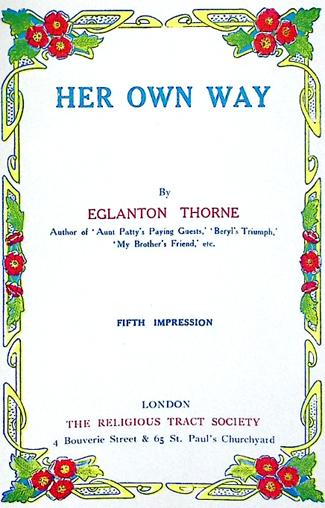Atlas of DIAGNOSTIC HEMATOLOGY
MOHAMED SALAMA, MD
Professor
Mayo Clinic School of Medicine;
Department of Laboratory Medicine and Pathology
Division of Hematopathology
Mayo Clinic Rochester, Minnesota
JULIE TERUYA-FELDSTEIN, MD
Director of Hematopathology
Professor
Department of Pathology, Molecular and Cell-Based Medicine
Icahn School of Medicine at Mount Sinai
Tisch Cancer Institute
Black Family Stem Cell Institute
Mount Sinai Health System
New York, New York
MARINA KREMYANSKAYA, MD, PHD
Assistant Professor
Tisch Cancer Institute
Icahn School of Medicine at Mount Sinai
New York, New York
Elsevier
1600 John F. Kennedy Blvd.
Ste 1600 Philadelphia, PA 19103-2899
ATLAS OF DIAGNOSTIC HEMATOLOGY
Copyright © 2021 by Elsevier, Inc. All rights reserved.
ISBN: 978-0-323-56738-1
No part of this publication may be reproduced or transmitted in any form or by any means, electronic or mechanical, including photocopying, recording, or any information storage and retrieval system, without permission in writing from the publisher. Details on how to seek permission, further information about the Publisher’s permissions policies and our arrangements with organizations such as the Copyright Clearance Center and the Copyright Licensing Agency, can be found at our website: www.elsevier.com/permissions.
This book and the individual contributions contained in it are protected under copyright by the Publisher (other than as may be noted herein).
Notice
Practitioners and researchers must always rely on their own experience and knowledge in evaluating and using any information, methods, compounds or experiments described herein. Because of rapid advances in the medical sciences, in particular, independent verification of diagnoses and drug dosages should be made. To the fullest extent of the law, no responsibility is assumed by Elsevier, authors, editors or contributors for any injury and/or damage to persons or property as a matter of products liability, negligence or otherwise, or from any use or operation of any methods, products, instructions, or ideas contained in the material herein.
ISBN: 978-0-323-56738-1
Executive Content Strategist: Robin R. Carter
Senior Content Development Specialist: Mary Hegeler
Publishing Services Manager: Catherine Jackson
Senior Project Manager: Kate Mannix
Design Direction: Patrick Ferguson
Dedicated to our patients, trainees, and colleagues for their inspiration; and to our families for unwavering support.
This project began with the idea to create a cytogenetic atlas to accompany Dr. Ronald Hoffman’s voluminous text Hematology and Dr. Hoffbrand’s Atlas of Hematology. As firsttime editors, we were not sure what we were doing or where we were going; however, we reached out to interested junior colleagues and mentors, and we thought of highlighting the rich resource of cases at Mount Sinai Icahn School of Medicine and Tisch Cancer Center presented at our numerous multidisciplinary tumor boards. What emerged over approximately two years was a variety and range of chapters, which were then categorized into factual (text based), case-based, and case-like formats integrating ancillary work-up as well as diagnostic algorithms.
Ultimately, the book serves as a short, concise, and informative quick reference to accompany Hoffman’s Hematology: Basic Principles and Practice. Our intended audience includes
current trainees, medical students, residents, fellows, and junior to senior clinical and scientific faculty in pathology and hematology/oncology. The strength is neoplastic hematology/hematopathology with room for expansion in benign hematology. Although Dr. Hoffman’s name does not appear on the book, the editors and authors are rising experts and long-time collaborators to Dr. Hoffman.
We wish to thank our families for their patience and unwavering support. We also thank our patients and their families; support staff; clinical and scientific faculty; and current trainees, students, residents, and fellows for their daily questions, inquiry, commitment, and continued inspiration.
Mohamed Salama
Julie Teruya-Feldstein
Marina Kremyanskaya
Suzanne A. Arinsburg, DO
Associate Professor
Department of Pathology, Molecular, and Cell-Based Medicine
Icahn School of Medicine at Mount Sinai
New York, New York
Meenakshi Garg Bansal, MD Staff Pathologist
Pathology and Laboratory Medicine
Rochester General Hospital Rochester, New York
Tapan Bhavsar, MD, PhD Department of Pathology and Laboratory Medicine
George Washington School of Medicine Washington, DC
Kyle Bradley, MD
Associate Professor Department of Pathology and Laboratory Medicine
Emory University Hospital Atlanta, Georgia
Ajai Chari, MD
Professor Medicine, Hematology, and Medical Oncology
Icahn School of Medicine at Mount Sinai
New York, New York
Alexander Coltoff, MD Fellow Department of Medicine
Columbia University Irving Medical Center
Herbert Irving Comprehensive Cancer Center
New York-Presbyterian Hospital New York, New York
Genevieve Marie Crane, MD, PhD Staff Hematopathologist
Robert J. Tomsich Pathology and Laboratory Medicine Institute Cleveland Clinic
Cleveland, Ohio
Siraj M. El Jamal, MD
Assistant Professor
Department of Pathology, Molecular, and Cell-Based Medicine
Icahn School of Medicine at Mount Sinai New York, New York
Adolfo Firpo-Betancourt, MD, MPA Professor
Department of Pathology
Icahn School of Medicine at Mount Sinai; Vice Chair for Integration Department of Pathology
Mount Sinai Hospital New York, New York
John Paul Graff, DO
Assistant Professor
Pathology and Laboratory Medicine University of California Davis Sacramento, California
Ralph Green, MD, PhD
Distinguished Professor Pathology and Laboratory Medicine
University of California Davis Sacramento, California
Jenny C. Hoffmann, MD Department of Pathology
Stanford University Palo Alto, California
Shafinaz Hussein, MD Assistant Professor
Department of Pathology, Molecular and Cell-Based Medicine
Icahn School of Medicine at Mount Sinai
Mount Sinai Hospital New York, New York
Keisuke Ito, MD, PhD
Associate Professor
Cell Biology/Stem Cell Institute and Medicine
Albert Einstein College of Medicine New York, New York
Kyoko Ito, MMSc
Principal Associate
Cell Biology/Stem Cell Institute
Albert Einstein College of Medicine New York, New York
Jeffrey S. Jhang, MD
Professor and Vice Chair
Department of Pathology, Molecular, and Cell-Based Medicine
Icahn School of Medicine at Mount Sinai; Medical Director, Center for Clinical Laboratories
Mount Sinai Health System New York, New York
Alla Keyzner, MD
Assistant Professor
Department of Hematology/Oncology
Mount Sinai Hospital New York, New York
Mary Klassen-Fischer, MD
Senior Pathologist
Infectious Disease, Pulmonary and Mediastinal Pathology
Silver Spring, Maryland
Marina Kremyanskaya, MD, PhD
Assistant Professor
Tisch Cancer Institute
Icahn School of Medicine at Mount Sinai New York, New York
Deepu Madduri, MD
Assistant Professor of Medicine, Hematology, and Oncology
Associate Director of Cellular Therapy
Director of Clinical Operations – Multiple Myeloma
Tisch Cancer Institute
Icahn School of Medicine at Mount Sinai
Mount Sinai Hospital New York, New York
Lauren S. Maeda, MD Department of Medicine
Stanford University Palo Alto, California
John Mascarenhas, MD
Associate Professor of Medicine
Tisch Cancer Institute
Icahn School of Medicine at Mount Sinai New York, New York
William Beau Mitchell, MD Department of Pediatrics
Albert Einstein College of Medicine
The Children’s Hospital at Montefiore Bronx, New York
Vesna Najfeld, PhD Director
Tumor CytoGenomic Laboratory
Professor of Pathology and Medicine
Department of Pathology, Molecular, and Cell-Based Medicine
Mount Sinai Health System
Icahn School of Medicine at Mount Sinai New York, New York
Shyamala Navada, MD, MSCR
Assistant Professor
Tisch Cancer Institute
Icahn School of Medicine at Mount Sinai New York, New York
Leonard Naymagon, MD
Clinical Fellow
Hematology and Medical Oncology
Icahn School of Medicine at Mount Sinai New York, New York
Ronald C. Neafie, MS
Former Chief
Parasitic Diseases, Pathology Branch
Armed Forces Institute of Pathology Washington, DC
Robert S. Ohgami, MD, PhD
Associate Professor
Department of Pathology
University of California San Francisco San Francisco, California
Bruce Petersen, MD
Assistant Professor
Pathology, Molecular, and Cell-Based Medicine
Icahn School of Medicine at Mount Sinai New York, New York
Parth Rao, MD
Attending Physician
Cancer Institute
Geisinger Medical Center
Danville, Pennsylvania
Anne S. Renteria, MD
Medical Director
Hematology, Oncology, and Cellular and Gene Therapies
Medical Affairs, ICON plc
New York, New York
Louella C. F. Rudon, BS
Transfusion Medicine
Mount Sinai Health System
New York, New York
Mohamed Salama, MD
Chief Medical Officer
Mayo Clinic Laboratories; Professor
Mayo Clinic School of Medicine; Department of Laboratory Medicine and Pathology
Division of Hematopathology
Mayo Clinic Rochester, Minnesota
Fadi Saleem, MD
Associate Professor
Department of Pathology
Mount Sinai Hospital
New York, New York
Amir Steinberg, MD
Hematologist-Oncologist
Department of Medicine
Division of Hematology-Oncology
Mount Sinai Hospital
New York, New York
Julie Teruya-Feldstein, MD
Director of Hematopathology
Professor
Department of Pathology, Molecular and Cell-Based Medicine
Icahn School of Medicine at Mount Sinai
Tisch Cancer Institute
Black Family Stem Cell Institute
Mount Sinai Health System
New York, New York
Douglas Tremblay, MD
Clinical Fellow
Department of Hematology/Oncology
Mount Sinai Hospital
New York, New York
Christopher Walsh, MD, PhD
Associate Professor
Department of Medicine
Icahn School of Medicine at Mount Sinai
New York, New York
Birtie Wistinghausen, MD
Department of Pediatrics
Hematology/Oncology
Children’s National Medical Center Washington, DC
Melanie Wooten, MD
Hematopathology Fellow
Department of Pathology and Laboratory Medicine
Emory University Hospital Atlanta, Georgia
1 Normal Hemopoiesis and Blood Cell Maturation, 1
Kyoko Ito, Keisuke Ito
2 Growth Factors, 13
Kyoko Ito, Keisuke Ito
3 Hypochromic and Hemolytic Anemias, 22
Meenakshi Garg Bansal, Genevieve Marie Crane
4 Megaloblastic Anemia, 47
Ralph Green, John Paul Graff
5 Myeloproliferative Neoplasms, 52
Marina Kremyanskaya, Vesna Najfeld, Bruce Petersen, Julie Teruya-Feldstein
6 Mast Cell and Non-Myeloproliferative Myeloid Neoplasms, 82
Julie Teruya-Feldstein
7 Myelodysplastic Syndromes, 98
Siraj M. El Jamal, Vesna Najfeld, Alexander Coltoff, Shyamala Navada
8 Acute Myeloid Leukemia, 110
Leonard Naymagon, Vesna Najfeld, Julie Teruya-Feldstein, Siraj M. El Jamal, John Mascarenhas
9 Precursor Lymphoid Neoplasms, 142
Julie Teruya-Feldstein, Anne S. Renteria, Vesna Najfeld
10 B-Cell Chronic Lymphoid Leukemias, 177
Melanie Wooten, Kyle Bradley
11 Hodgkin Lymphoma, 211
Amir Steinberg, Parth Rao
12 Indolent and Aggressive B-Cell Lymphoma, 217
Genevieve Marie Crane, Tapan Bhavsar
13 Indolent and Aggressive Mature T-Cell and Natural Killer–Cell Lymphomas, 251
Jenny C. Hoffmann, Lauren S. Maeda, Robert S. Ohgami
14 Myeloma and Related Conditions, 274
Shafinaz Hussein, Ajai Chari, Fadi Salem, Deepu Madduri
15 Childhood Hematopoietic Disorders, 306
Julie Teruya-Feldstein, Birtie Wistinghausen, Vesna Najfeld
16 Posttransplant Lymphoproliferative Disorders and Immunodeficiency, 322
Alla Keyzner, Douglas Tremblay, Julie Teruya-Feldstein
17 Infectious Processes in Blood and Bone Marrow, 339
Mary Klassen-Fischer, Aldolfo Firpo-Betancourt, Ronald C. Neafie
18 Hemophilia, 360
William Beau Mitchell, Christopher Walsh
19 Transfusion Medicine and Cellular Therapy, 368
Suzanne A. Arinsburg, Jeffrey S. Jhang, Louella C. F. Rudon
HER OWN WAY
CHAPTER I
A HOUSE DIVIDED AGAINST ITSELF
"THE girls are late to-day."
"You mean that Hannah is late, mother; for there is no saying when Juliet will choose to appear, and they never come together. It is a strange thing for Hannah to be behind her time."
Mrs. Tracy sighed as she looked anxiously between the flower-pots which adorned the window-ledge, and rather
obscured the view from where she sat in her low easy-chair.
The window looked into a grassy enclosure, too small to be dignified by the name of garden, though there was a fine show of primroses and wallflowers in the narrow bed beside the gravel path, and ferns were growing tall and strong in the rockery below the windows. On the farther side of the strip of grass, just within the iron railing that enclosed it from the road, stood three tall, leafy poplars, screening the house from the busy suburban thoroughfare in which it stood, and giving it its name.
As Mrs. Tracy looked forth, she caught glimpses through the trees of passing omnibuses and tramcars. The din of the traffic made itself heard, though the window was closed. Some of her acquaintance had tried to persuade Mrs. Tracy that the trees shut out air from the house, and it would be wiser to cut them down; but she always felt that it would be unendurable to live so near the high road without the slight shelter which their thick trunks and soaring boughs afforded. And the comparatively low rent asked for that oldfashioned residence, known as The Poplars, suited her narrow purse, and constrained her to endure its inconveniences as best she could.
Mrs. Tracy was a frail-looking little woman, with a face which had once been pretty and was still pleasant to look upon. It wore a somewhat careworn, anxious expression, but without a trace of fretfulness. As she rested in her low easy-chair, with her knitting lying in her lap, she had the air of one to whom exertion of any kind is distasteful. She was dressed in a manner perfectly becoming her fifty years, but the lace falling so prettily about her neck, and her dainty little lace head-dress with its cunning knot of pink ribbon, showed that she was by no means indifferent to the appearance she presented. Her small, soft, white hands
glittered with handsome rings; the little feet outstretched on hassock were clothed with neat velvet slippers with bright jet buckles. At fifty Mrs. Tracy had not outlived her love for pretty things.
The daughter who stood near, and who was engaged in putting sundry finishing touches to the table which was prepared for their midday dinner, did not in the least resemble her mother. Salome Grant was a tall, well-grown young woman of seven-and-twenty. She had sandy hair, pale blue eyes with very light lashes, and a rather high complexion. Her abundant hair was brushed very smooth, and arranged in the neatest fashion. Her whole appearance, indeed, was severely neat. Her serge gown fitted her well, but it entirely lacked what dressmakers term "style," and no touch of colour relieved its sombre hue. One might have credited Salome with excellent qualities, but assuredly no one at first sight could have found her interesting, or felt eager to pursue her acquaintance.
"Here comes Hannah," she said, glancing through the window, as she heard the gate swing back.
And the next minute, Hannah entered the room. She was barely two years older than Salome, and resembled her sister far more than she did her mother. She was betterlooking than Salome; her hair was darker, her complexion less high-coloured, her features stronger, and her eyes a deeper blue. Her ample square forehead, from which the hair was rigorously brushed back, seemed to denote considerable intellectual power, whilst the firm lines of mouth and chin showed a strength of will which might degenerate into obstinacy. She looked a strong, capable, energetic woman as she came quickly into the room, her countenance wearing a slightly harassed expression.
She was one of the staff of mistresses belonging to a large high school established in the North London suburb in which Mrs. Tracy lived. She had worked hard, and improved her position considerably since she entered the school, having won the character of a most efficient teacher and thorough disciplinarian. She and Salome were the daughters of Mrs. Tracy's first marriage with a sober, hardworking Glasgow man of business. They resembled their shrewd, staid, matter-of-fact Scotch father far more than they did the pretty, loving little Englishwoman, whom, with a strange lack of his usual prudence, he had taken to wife.
"I am sorry to be late, mother," Hannah said in clear, incisive tones, "but it is not my fault. I saw Juliet in the playground with that horrid Chalcombe girl, so I went to ask her if she were ready to come home. Juliet was in one of her tiresome moods, and was not too polite to me. At first, she would not say what she would do; but finally I understood her to say that she would come. However, after I had waited for ten minutes, I saw her walking away in the opposite direction with her new friend."
"Oh dear!" said Mrs. Tracy, a flush suffusing her delicate face.
"Did you really tell Juliet, mother, that she was not to make a friend of that girl?"
"Oh yes, dear, I spoke to her about it; but she seemed to think it hard that they could not be friendly when they were in the same form, and I thought that Juliet would soon be leaving school, and after that they are not likely to see much of each other, you know."
"But, meanwhile, there is time for Juliet to get a great deal of harm," replied Hannah. "However, if you like her to
associate with the daughter of an actor, I have nothing more to say."
"My dear! I do not like it. You should not say that. Is the girl's father really an actor?"
"Well, I do not know that he acts," said Hannah deliberately; "I think someone said that he was the lessee of a theatre at Bow. He has a son who sings at music halls."
"What people for Juliet to take up with!" exclaimed Salome, in a tone of disgust. "She will be wanting to become an actress next. There is no accounting for what Juliet will do. She seems to have no sense at all."
"Don't make her out worse than she is," pleaded her mother. "She knows nothing of the father and son, and I daresay the girl is not so bad; Juliet seems very fond of her."
"I only wish you could see her!" said Hannah. "She dresses in the most extreme style, wears flashy jewellery, and is generally vulgar. Her complexion is frightfully got up. As for her work, their form-mistress tells me it could hardly be worse. We all wish she had not come to the school, for she will do us no credit."
"Juliet should be forbidden to have anything to say to her," remarked Salome.
"It is easy to say that," replied her mother, "but you know it does not do to take extreme measures with Juliet. Once drive her into defiance, and you can do nothing with her. I believe she is persisting in this intimacy just because she knows you are set against it."
"That is likely enough," said Hannah, in a bitter tone. "Well, I only hope that you may never regret that you have not taken more extreme measures with Juliet. You will not wait dinner for her, mother?"
Mrs. Tracy made a sign of dissent, and in a few minutes they were seated at the dinner-table. The mother was depressed, and ate with little appetite.
She stood in some awe of her elder daughters, with their exemplary conduct and correct views. She always felt that they had had some right to resent her marriage with Captain Tracy, a gay, dashing Irish officer, some years younger than herself. Hannah and Salome had been mere children at the time, but they had not failed to show their resentment. When, shortly after his marriage, the captain's regiment was ordered to India, a relative of their father offered to take charge of the two girls during their mother's absence abroad. Mrs. Tracy was well pleased with this arrangement.
She had been absent for seven years when she came back to England with her pretty though faded face, framed by a widow's sombre veil, and bringing with her a wilful, fascinating little girl, with sunny hair and violet eyes. The gay captain had met with an accident at a polo-match, from the effects of which he had died shortly afterwards. His widow mourned him sincerely, though he had been but a sorry husband, sublimely indifferent to her comfort and welfare, as long as he could squander her money on his own pleasures. But the indifference had been delicately veiled, and only on rare occasions had Mrs. Tracy, with a bitter heart-pang, suspected its existence. Captain Tracy pursued his extravagances in a gentlemanly manner, and never failed to treat his wife with lover-like, caressing tenderness, so that she loved him passionately to the last,
and paid his debts of honour, time after time, with but faint remonstrance.
But the large sums she had realised for this purpose, in spite of every objection raised by the Scotch solicitor who managed her affairs, were a serious drain on her resources. She came home to find the property her first husband had left her considerably diminished, and to learn that it behoved her for the rest of her life, by rigid economy and self-denial, to make amends for Captain Tracy's extravagance. The lesson was a painful one, embittered by her sense that her elder girls had a right to reproach her with careless neglect of their interests.
By this time, Hannah and Salome were almost women. The high-bred, irreproachable, somewhat narrow-minded Scotch cousin in whose home they had been living had left her stamp on them. They hardly seemed like her own daughters to Mrs. Tracy now. They were far more orderly and methodic in their habits than she was herself, and held stricter views with regard to the expenditure of time and money. The mother felt half afraid of these very wise girls. She was thankful that they were so good, but she could not help wishing that they had been a little less strong-minded, and could have made some allowance for the faults of their pretty, perverse half-sister.
Then, with a sigh, she would remind herself that it was only natural that they should be hard upon poor little Juliet, and resent her presence in their home. And the mother's heart clung the more passionately to the child who seemed so much more her own than these others. The girls were quick to see that their mother loved Juliet best, and their minds were not too high-toned to admit of jealousy. Juliet became a constant thorn in their sides. They looked upon her as the disturber of the peace of their home. But Juliet
was her mother's darling, though, in truth, a very naughty darling.
For a year or two after her return from India, Mrs. Tracy had a hard struggle to maintain a little home. But Hannah studied with an assiduity which astonished her mother, whose own education had been of the old-fashioned, superficial order; she passed one examination after another with honours, and finally attained the immediate goal of her ambition by being appointed assistant-mistress in a high school. Then it was that Mrs. Tracy felt justified in taking The Poplars as her residence, which had now been their home for over eight years.
The meal was half over, when a loud and very characteristic knock at the front door announced Juliet's return. The next minute she entered the room, a slight, graceful girl, whom no one would have taken to be more than seventeen, though, in truth, she had passed her nineteenth birthday.
A greater contrast than her appearance presented to that of her sisters it would be difficult to imagine. She was delicately fair, with eyes of that deep, soft hue which is better described as violet than blue. Masses of soft bright hair, which might justly be termed golden, though not of the deep reddish tinge which often wins that name, showed beneath the sailor hat which, either by intention or accident, was placed on her head at rather an unusual angle. Juliet's wavy, flossy locks were always more or less dishevelled. Perhaps she meant them to express a protest against her sisters' smooth, shining polls. Her serge gown had quite a different effect from Salome's, yet was made of the same material. It suited her charmingly, though it was shabby, and an ink-stain soiled the frilled cambric vest.
Mrs. Tracy turned with a smile of welcome on her face as the girl entered. It was a delight to her to see the sweet, bright face that smiled at her in response. She thought that no one could fail to feel the charm of that young face; but her sisters saw in Juliet's demeanour only the signs of those qualities of mind and character which they held in special abhorrence, and her prettiness was to them merely an aggravating circumstance, heightening the enormity of her heedlessness.
She came into the room swinging a strapful of books in one hand, and she surveyed the party at the table in the coolest manner for a moment, ere, advancing to her mother's side, she bent to kiss her.
"How is it you are so late, Juliet?" asked her mother, with only the faintest reproof in her tones. "See, we have almost finished dinner."
"I walked a few steps with Flossie Chalcombe," replied Juliet, her eyes flashing defiance at her sister Hannah; "she had something to tell me. I did not think it was so late."
"I told you it was getting late," said Hannah; "I warned you there was no time to spare."
"That was very good of you," returned the girl, with insolent coolness; "I fear I lost sight of the fact afterwards. But here I am at last, and desperately hungry too, mother dear; so don't let us waste time in words."
"My dear Juliet!" protested Mrs. Tracy; but she began quickly to serve her.
"You are surely not going to sit down as you are?" said Salome.
"Why not?" retorted Juliet. "It's quite proper to wear your hat at luncheon."
"But this is our dinner," said Hannah.
"What does it matter?" asked Juliet. "What's in a name? A potato, please, Salome. Oh, you need not look at my hands; they are quite clean, I assure you. I washed them in the dressing-room before I left school. Just fancy I am Mrs. Hayes, and it will be all right."
"Never mind, dears," said Mrs. Tracy hurriedly, as she met the disapproving glances of her elder daughters; "it is better she should take her dinner quickly. Ann is so put out when the meals are kept about."
"You had better speak to Juliet about that," said Salome. "It is not Hannah and I who keep the meals about."
"Oh, of course it is me," said Juliet, with more emphasis than grammar; "everything that happens is always my fault."
"Oh, hush, my dear!" said her mother, looking uneasy.
But Juliet was not easily subdued. Hannah and Salome fell into dignified silence, but Juliet continued to talk in her gayest, most careless manner, as though determined to show her sisters that she cared naught for their disapproval. She looked very charming, with a glow of soft, rich colour in her cheek and a mischievous sparkle in her eyes.
Her mother might be forgiven for the loving admiration her eyes so plainly expressed. Despite the daring freedom with which she often deported herself, there was no grain of coarseness perceptible in Juliet's bearing. Even in her most careless actions, her least conscious attitudes, there was
always a subtle grace. She was as frank and bold of speech as a boy, yet had all the charm of fresh young maidenhood.
She was a grand favourite with both scholars and teachers at the high school, where she still studied. Even those who shook their heads over her thoughtlessness, and were most aware of her faults, felt the witchery of her prettiness and grace and sunny light-heartedness. Perhaps her sisters were the only exceptions to this rule. But then Juliet had never tried to ingratiate herself with them. She had always taken a perverse delight in shocking and vexing them.
When they had finished their dinner Hannah and Salome begged to be excused from sitting longer at the table, as they wanted to go out. Juliet heaved a sigh of relief as the door closed on them.
"Thank goodness, they are gone!" she said. "What wet blankets they are!"
"My dear! I don't think that is a nice way to speak of your sisters."
"No?" said Juliet, turning to her mother with a smile which seemed to take all the impertinence from the query. "But you and I are always happier when we are left alone together, mother dear. You can't deny that. There are two parties in this house; you and I on one side, and Hannah and Salome on the other. We are the Whigs, and they are the Tories. It is a house divided against itself."
"Oh, not so bad as that, I hope!" exclaimed Mrs. Tracy. "You know what the Bible says about a house divided against itself?"
"That it cannot stand," replied Juliet gravely. "Sometimes I wonder how long our house will stand. Hannah will have to learn somehow by the time I am twenty-one that I mean to take my own way and do as I like."
Mrs. Tracy looked troubled. "I wish you would not set yourself so against Hannah," she said; "she only desires your good."
"Oh, of course!" Juliet laughed scornfully. "I suppose it was my good she was seeking when she came after me in the playground, using so little tact in her efforts to draw me away from Flossie Chalcombe, that Flossie saw her intention, and was hurt."
"Ah, that was a pity!" said Mrs. Tracy, with feeling. "But, dear, I am afraid, from what I hear, that Miss Chalcombe is not a nice friend for you."
"But, mother dear, you can have heard nothing of her except what Hannah says, who is a most prejudiced person. Flossie is really a very nice girl. May I bring her here some day to see you?"
"I am afraid that would not do, Juliet. Your sisters would not like it."
"Oh, if you must consider them!" exclaimed Juliet impatiently. "They fancy Mr. Chalcombe cannot be respectable because he has something to do with the theatre, though if he were at the top of the profession, like Irving, they would be eager to make Flossie's acquaintance."
"I don't think that would make any difference to your sisters' feelings, Juliet."
"Well, perhaps not to theirs," the girl admitted; "but it would be the case with most of the teachers and girls at school. It is a shame the way they shun Flossie. I feel for her very much. She says I am the only friend she has, and I mean to be true to her. I will not give her up, whatever Hannah may say or do."
Mrs. Tracy received this defiant speech in silence. She could sympathise with Juliet's generous resolve to stand by the girl to whom others were disposed to turn the cold shoulder. She herself, as an officer's wife, had been wont to seek out and befriend those whom, for some trivial cause or other, the elite of the regiment were disposed to hold at arms' length. She hesitated to tell the girl that she must restrain her kindly impulses.
"You would do the same in my place, mother," said Juliet, as she fixed her large violet eyes on her mother's face, and read her mind.
Mrs. Tracy smiled. "Perhaps I should, Juliet; but still I do not like you to make undesirable acquaintances. You are so young, and know so little of the world."
"I may know little of the world," exclaimed Juliet hotly, "but at all events I know enough to see that people are not so bad as they are made out. If Flossie is an undesirable companion, I can only say that I like her infinitely better than any proper, correct, narrow-minded person like Hannah. I begin to doubt the advantages of the respectability on which Hannah and Salome pride themselves, when I see how much nicer people can be without it."
"Oh, child, don't talk like that! You frighten me. Hannah and Salome are right. They may be a little over-strict,—I do
not say they are not,—but they are right in the main. It never does to defy social opinion. Bohemianism may look attractive to a young girl like you, who knows nothing about it, but it is a perilous borderland at the best. Oh, I do wish I could persuade you—"
"Not to give up being friendly with Flossie Chalcombe, who has no dear mother as I have, and really wants me," said Juliet, who had approached her mother, and now slipped one arm about Mrs. Tracy's neck, and deftly closed the lips, whose utterance she did not wish to hear, with her rosy finger-tips. "You would not wish me to do that, I am sure, mother mine." Then with a loving hug and kiss Juliet bounded away, laughing lightly as she quitted the room.
Thus the talk between Juliet and her mother ended as Hannah could have foretold that it would end.
CHAPTER II
THE ILL-CHOSEN FRIEND
HANNAH GRANT was an excellent person in every way. Her health was as sound as her principles, and she was a fine-looking, without being a winsome, woman.
Others beside her pupils shrank from the severe scrutiny of her cold blue eyes. Yet she was fairly liked by the girls she taught, for, whilst a strict disciplinarian, she was invariably just. Clear-headed and eminently practical,
she had a knack of imparting knowledge in such a manner that even the least nimble-minded could not fail to grasp it. This, however, was not the outcome of mere chance, but the result of conscientious effort on her part.
Whatever Hannah undertook to do, she took infinite pains to do it well. She gloried in her thoroughness, her good sense, her subjection of inclination to duty. It followed that she had little patience with those whose conduct fell below her own standard. She lacked the imaginative insight and the gentle sympathy that might have led her to make allowance for her weaker sisters. The idle, thoughtless, and inconsequent amongst her pupils found no mercy with her.
Juliet was not in the form taught by her sister, and they came little into contact during school hours. Though by no means stupid, Juliet rarely took a good position in her classes. She had been frail and delicate as a child, as children born in India often are, and Mrs. Tracy refused to allow her education to be pressed. She should run wild until she had attained some robustness.
The running wild may have been of advantage to Juliet physically, but it developed in her qualities of mind and character which could not afterwards easily be eradicated. When she entered the high school she was far more backward in her studies than most girls of her age, and, having never learned to apply herself, her progress for some years was most tedious.
It vexed Hannah that Juliet should take so low a place in the school. She was irritated by seeing in her sister those faults of idleness, carelessness, and indifference which she knew must prove fatal to her advancement. She was persuaded that Juliet could have done better if she would.
But Juliet would not see the importance of her own education; there was no inducing her to take a serious view of the future that lay before her. She had wished to leave school long before this, and Mrs. Tracy would weakly have yielded to her desire, but for Hannah's strong representation of the necessity for Juliet being properly educated, since she would have to take a situation when she left school.
Mrs. Tracy shook her head in secret over the thought of her pretty Juliet becoming a governess, but she did not dare to openly oppose Hannah's suggestion. Though she remained at school longer than many girls do, Juliet never attained the dignity of the sixth form, and Hannah herself had decided that her young sister must leave at the end of the present term.
Hannah might be forgiven for feeling annoyance when Juliet, who could have had almost any girl in the school for her friend, chose to attach herself to Flossie Chalcombe. For undoubtedly the girl was of a lower social stamp than most of the scholars, though she was sufficiently bright and pretty to attract Juliet's somewhat fickle fancy. Her features were good and of a pronounced type; she had a quantity of dark hair, which she wore very much becurled on her forehead; long, rather peculiar greyish eyes; and a complexion which was suspiciously pink and white. She was wont to darken her eyelids and otherwise "get up" her eyes, and her lips were brilliantly red. She dressed smartly; but her clothes seldom looked fresh, and were never such as became a schoolgirl. She wore ornaments in her ears, and her hands were always adorned by rings and bangles. There was a disagreeable, underbred air about the girl.
Juliet, who with all her perversity was an innate little lady, could hardly be entirely unconscious of what was
lacking in her friend. Flossie looked the elder, though in reality, some months younger than Juliet. Her life had been very different from that of Juliet. Ignorant of many things, with mind untrained and neglected, she yet had much of such knowledge of the world as she would have been better without. Hannah was right in deeming her an undesirable acquaintance for her young sister; but it was a pity she so openly opposed the friendship, since it had the effect of rendering Juliet, ever prone to resent Hannah's judgments, perversely bent on maintaining it. Left to herself, Juliet would probably soon have ceased to care for Flossie Chalcombe. She was rather given to becoming passionately attached to people for a short time. The fascination, enthralling whilst it lasted, was seldom of long duration.
On the day following that on which our story began, Juliet and Flossie came out of the schoolhouse together about four o'clock. They were not often at the school in the afternoon, but to-day they had been attending the class for calisthenics, for which no time could be found during the morning.
"Do come home with me, Juliet," said Flossie, as the gate swung to behind them; "you might as well. You have plenty of time this afternoon."
"I can't come home with you," said Juliet, somewhat startled by the proposition, "but I don't mind walking part of the way."
"Why cannot you come all the way?" asked Flossie. "You have never even seen where I live. But I know why it is. You are afraid of what Miss Grant will say. She does not consider me a proper acquaintance for you."
"Nonsense!" exclaimed Juliet, colouring.
"You know it is true, Juliet. You cannot deny it."
"Well, if it is, I don't care that for what Hannah says." And Juliet emphasised her words by kicking a piece of orange peel from the pavement into the gutter.
Flossie laughed.
"Bravo, Juliet! I admire your spirit. As I was saying to Algernon yesterday, you are not the girl to be domineered over by those old maids at home."
Juliet was silent. She did not quite like the way in which Flossie spoke of her sisters. In spite of her antagonism to them, she was not insensible to the family bond, but was ready to resent any detraction of them from an outsider. Flossie saw she had made a mistake, and tried to divert Juliet's thoughts by the remark
"Algernon says he is sure you will not be an old maid."
Juliet blushed warmly.
"I wonder what he can know about it?" she exclaimed, in some embarrassment.
"Oh, he can judge; he has seen you."
"Has he?" exclaimed Juliet, in surprise. "When?"
"Oh, the other night at the school concert."
"Was he there? Oh, I wish I had seen him!" exclaimed Juliet naïvely, though the next moment she blushed for her words. Flossie constantly talked to her of this brother, of whom she seemed very proud, and Juliet had become interested in him.
"Yes, he came because he wanted to see you, and he hardly took his eyes off you all the time. He said there was no one else worth looking at. He paid no attention to the music; he only looked at you."
Juliet's blushes deepened.
"Of course he could not care about the music," she said hurriedly, "it must be so inferior, so different at least, from what he is accustomed to."
"Oh, of course."
"I wonder I never saw you," said Juliet. "I looked about a good deal, too."
"We were farther back, at your right. We did not stay till the end. Algie got tired of it—or rather, he had another engagement. We saw you well, Juliet. You looked so pretty in that white frock. I never saw you in white before. I suppose that nice-looking lady in black silk was your mother?"
"Yes, that was mother," said Juliet, with pleasure in her tones.
"But what an odd-looking individual it was who sat on the other side of you! I took her to be your other sister, by her likeness to Miss Grant. Does she always dress in that very severe style?"
"Always," said Juliet, with some sharpness in her tone, for she thought her companion a little too free with her comments. "Salome thinks it is wrong to dress like other people. You know she is very religious, works amongst the poor, and all that sort of thing, so she dresses plainly on principle."
"Oh dear, I am glad I do not feel it my duty to make a guy of myself!" laughed Flossie. "However, as Algernon remarked, she makes an excellent foil to you. Do you know he walked to school with me this morning because he wanted to see you? It was tiresome of you to come late."
"Oh, indeed! I do not at all regret it," said Juliet, tossing her head.
"Now don't be high and mighty. What harm would Algernon do by looking at you? He says you are an inspiration to him."
"An inspiration! Really! I like that!" And Juliet laughed merrily.
"Ah, you may laugh, but it is true. He has begun to write a dramatic play, and you are the heroine."
"Flossie!"
"It's quite true. You are a lovely maiden shut up in a castle, guarded by an ogre, and he is the hero who comes and delivers you. He told me so, indeed. Of course he may have been making fun; but I know he is writing a play."
"Has he written any before?" asked Juliet.
"Yes, but they have never been put on the stage. He thinks this will be a great success. He writes sometimes, and things of his have been published in the comic papers. Algernon is really very clever, though I say it."
"He must be," said Juliet, in a tone of conviction.
As they talked thus, Juliet had been walking on without noting how far she was going. Nov, as a turn of the road
brought into view a wide grassy space enclosed by palings and intersected by paths running in various directions, she suddenly paused.
"Why, here we are at the Green!" she exclaimed. "I never meant to come so far. Now I must say good-bye, Flossie."
"No, indeed. You must come home with me, now you are so near. That is our house just over there on the other side of the Green. Do come, Juliet; Algernon will be so pleased if he is at home."
Juliet drew back, instinctively drawing up her slight figure.
"But he is hardly likely to be at home at this hour," said Flossie, with a quick perception that she had said the wrong thing. "I shall probably find the house empty. You might come and have a cup of tea with me, Juliet."
Juliet shook her head, but she felt tempted. She was curious as to her friend's home, and interested in the brother whom she had inspired to write a dramatic play. She shrank from the thought of meeting her admirer; but she would have liked well to get a clearer notion of him and his surroundings. But she knew that her mother would strongly object to her entering the Chalcombes' house, and to do so would be to flaunt the flag of defiance in Hannah's face.
"You need not tell them at home, if you are afraid of a row," suggested Flossie, as Juliet hesitated.
"I am afraid of nothing," exclaimed Juliet impetuously, "and I am not one to conceal what I do! But I cannot stay, Flossie. Mother would—"
"Consider that you had demeaned yourself by crossing our threshold," Flossie interrupted her, in a resentful tone. "I wonder what there is about us that people should shun us as if we were lepers."
"Mother does not feel so, Flossie; she does not know you. It is only Hannah who is—as horrid as possible."
"But you say you do not care for Hannah's opinion; you are not going to be controlled by her. Ha, ha! Juliet; I shall begin to think you are afraid of Miss Grant, after all, if you refuse to come in."
The colour rose in Juliet's face. She was one who could be dared into doing things, as Flossie knew well. Juliet forgot the pain her action would cause her mother, forgot every consideration which should have withheld her from entering the house of which she knew so little, in the passionate desire of her will to assert itself, and show she was in subjection to no one.
"I am afraid of nobody!" she exclaimed hotly; "I take my own way whenever I choose; and, just to show you that, I will come with you, Flossie; but you must not ask me to stay long."
Flossie smiled triumphantly as they started to walk across the Green. Juliet might boast of taking her own way; but in their intercourse it not seldom happened, as now, that it was Flossie and not Juliet who gained her end.
The house in which the Chalcombes lived stood back from the road, and was screened by a small shrubbery. The approach to the house was ill-kept, and the steps very dirty; but Juliet was not one to heed such details. On the top of the steps, a huge bull-dog was stretched. He roused himself at the sound of a strange voice, and broke into a




